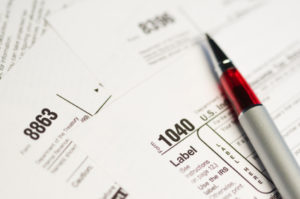Payroll may seem like a straightforward topic, but there is a lot more to it than just tracking hours and cutting checks. Unfortunately a lot of small business owners don’t realize that and, before they know it, they’re up to their ears in tax forms and reports they’ve never even heard of. Calculating, and staying on top, of payroll can actually be pretty complicated, especially if you don’t have a background in accounting.  So what do small business owners absolutely need to know about setting up a payroll system?
So what do small business owners absolutely need to know about setting up a payroll system?
You must withhold taxes
The federal, state, and local governments can all levy tax on income, and it is your responsibility as an employer to withhold the necessary amounts from your employee’s paychecks and send that into the proper agency. That means staying on top of the current social security and medicare rates, along with any other withholding required – the federal government, and most state governments, collect an income tax. And, to further complicate matters, that tax rate is usually graduated. Still, you are responsible for staying on top of all of that information, so having a system in place will go a long way in keeping track of everything.
You need to stay on top of forms and filing
The IRS loves forms – the ‘Employment Tax Forms’ page of their site lists twenty-five of them. Most small business owners know they need to process and provide W-2s and, in some cases, 1099s, but there is obviously a lot more to tax filings than just those. And that is just at the federal level. If you choose to set up your own system, take a look at that page and see which ones are applicable to your business; forms W-2, W-4, 940, 941, 1040, and 1099 should all be on your list. Note the information they need, and any deadlines they need to be filed by, and then incorporate that into your payroll system.
You don’t need employees to use a payroll system
This is one of the most misunderstood parts of payroll. A lot of entrepreneurs mistakenly assume that, since they only have to deal with their own income and withholdings, they don’t need a system. But even if you are the only employee on your company’s payroll, having a system in place is still useful. For one you’ll hopefully expand and hire later on down the road, and that transition is much easier with a pre-existing system. But even if you plan never to hire another person, a payroll system allows you to stay on top of the withholdings and payments you need to make. The penalties for missing deadlines and payments can be steep, so don’t overlook a payroll system – they nearly always make running a business much easier.
Interested in learning more about payroll? Click here to sign up for a free consultation, courtesy of our friends at Paychex.